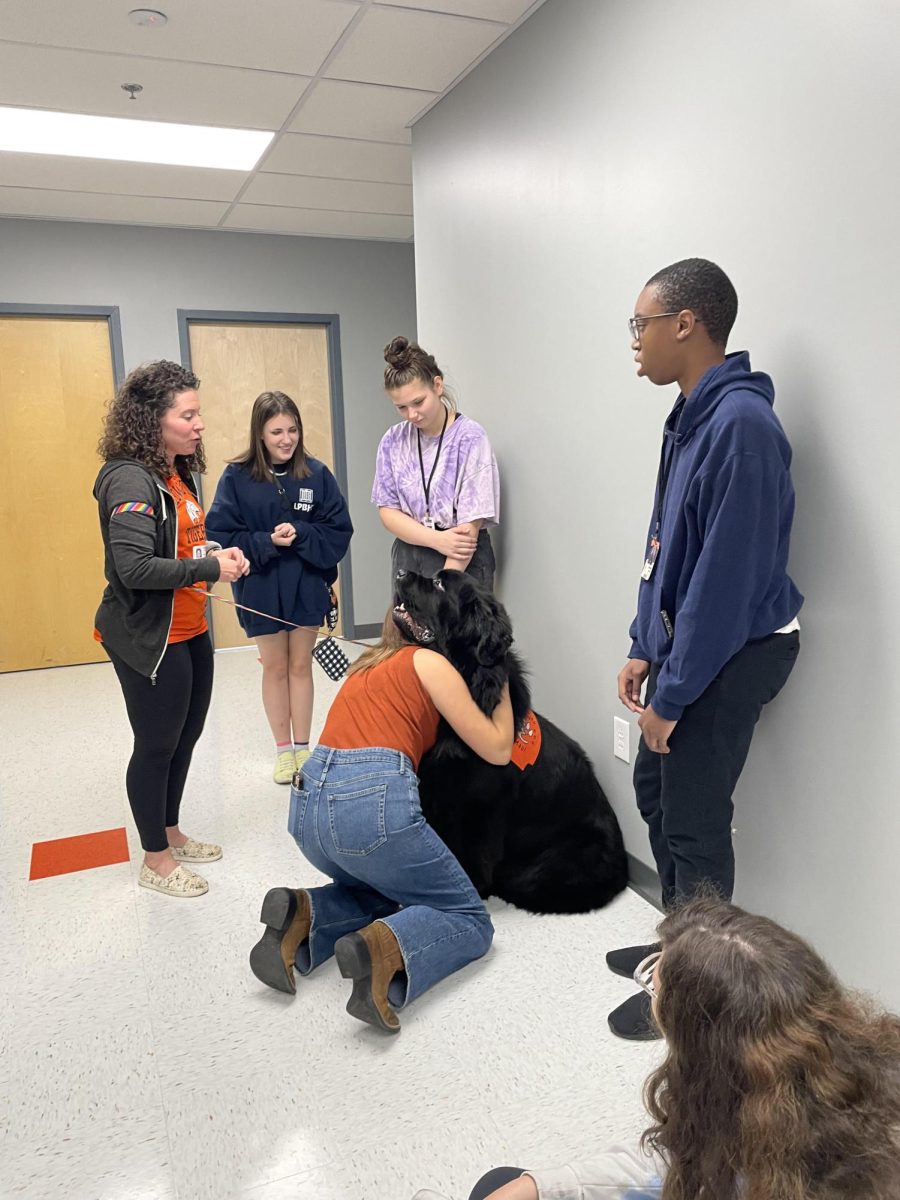You might’ve noticed the signs on the walls pointing you in the direction of him. You might’ve overheard his name echoing through the hallways.
Located in room A177 on Thursdays, the 3-year-old Newfoundland Maui is EHS’s newly established therapy dog.
According to sophomore Logan Szymanski, it was originally his mom, Amanda, who had the idea to bring Maui to the school.
As Maui’s handler, she reached out to administration at the end of the last school year proposing the possibility, and after a summer filled with staff meetings and paperwork, Amanda started bringing him in September.
Logan said the school was interested in having Maui because they wanted to provide another resource that students struggling with mental health could use.
“He went in during one of the teacher in-service days before school started to meet all the administration and teachers to make sure that everyone knew him and would be a good fit,” he said. “So far, it’s worked out.”
According to the National Library of Medicine, many educational programs across the world have implemented the use of animals to facilitate learning. For example, organizations in Australia have adapted “dog-assisted reading programs” into their curriculum.
In addition, therapy dogs are proven to have positive effects on mental health. Studies published on the NLM website show that dogs reduce anxiety, stress, depression and loneliness. It was also found that interacting and petting the animal promotes the release of hormones like serotonin, prolactin and oxytocin- all of which are mood-boosting.
In a survey taken from 134 EHS students, 74.6% were aware of the therapy dog on campus, but only 65.7% have visited. 86% of them felt that it helped their overall mental health.
Junior Aubree Kloostra, who visits Maui at least once a week during lunch, said “hanging out with him for a few minutes” helps her calm down after being in the busy cafeteria. With only her and her friends in the room, the lack of people means the focus is entirely on Maui.
“I would say that he’s sometimes slobbery so…it’s not entirely pleasant,” Kloostra said. “But I’ll take the trade off.”


